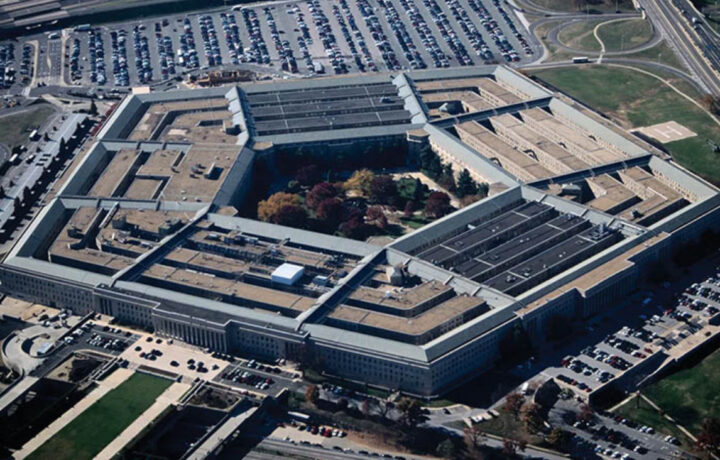The United States Department of Defense (DoD) is now actively preparing for an armed conflict with China; however, the Pentagon may not be adequately prepared for a different type of engagement, namely, a trade war. At issue is how it would impact global supply chains, as well as America’s access to critical minerals, notably those sourced from China.
There has been speculation that President Donald Trump will use emergency powers that could allow greater control over domestic industries and resources.
The Defense Production Act (DPA), a Cold War-era law that grants the president significant emergency authority to control domestic industries, was invoked by Trump during his first term and by former President Joe Biden during the pandemic. It is modeled after the War Powers Act (WPA), which was established during World War II. The DPA was passed into law in September 1950 at the start of the Korean War, and gave the president a broad set of powers.
All About the Minerals
In this case, the DPA aims to reshape the critical mineral industry, which China currently dominates. Beijing has responded to Trump’s tariff policies by halting essential exports of minerals, which, as Reuters reported, has seriously rattled global supply chains.
Trump previously invoked the DPA in March to help increase domestic production of the rare earth minerals used in the production of computer chips, robots, and advanced weapons.
“In anticipation of an ongoing critical materials supply squeeze, manifested and created by China, the administration has quietly issued an executive order utilizing the Defense Procurement Act,” said David Argyle, CEO of REalloys Inc., an American-based producer of rare earth magnets.
“This order lays the groundwork which will allow the Department of Defense to start issuing directives and instructing companies to increase strategic supplies for defense purposes,” Argyle told ClearanceJobs via email. “With the ongoing and escalated critical materials war with China, the president has mobilized additional options to ensure the supply chains are protected.”
China Has Planned Ahead
The potential trade war with China highlights the importance of a largely overlooked issue: excessive dependence on materials from a nation that could potentially be hostile to the United States.
“China has been working for years to create an effective monopoly on rare earth metals, and while we do have resources like the Heavy Mineral Sand Mining operation in Georgia, the facility where those minerals are refined is in China,” explained technology industry analyst Rob Enderle of the Enderle Group.
“Allowing China to achieve their near monopoly was a massive strategic mistake that should have been a priority to fix before any trade war with them kicked off because, should we enter a shooting war, we lack sufficient rare earth metals or refining capacity effectively to fight (rearm) the war for any significant length of time,” Enderle told ClearanceJobs.
He warned that if a shooting War with China were to start, it could be similar to the Second World War, with the U.S. having a significant initial advantage, much like Germany did back then.
“However, the manufacturing capacity and resources China could bring to bear would rapidly reverse that advantage,” said Enderle, “Much like the U.S. did to Germany, leading to the U.S.’s eventual loss in an ironic twist of fate.”
Look Beyond China
The short-term solution is that the U.S. may need to explore options beyond what the DPA can enable. Yet, the options are still limited.
“There are increasing recycling efforts to recover these metals, the DoD, assuming they haven’t screwed this up, has a stockpile of these metals which is limited but undergoing review to expand,” Enderle emphasized.
One issue may be accessing them, while the Department of Energy was developing methods to improve extraction, processing, and recycling. However, that was before the recent budget cuts directed by DOGE.
“And there is American Rare Earths, a company that controls 367 related mining claims in Wyoming and Arizona,” Enderle added.
The company is now attempting to produce rare earth metals in an environmentally safe way, unlike some of the efforts being undertaken in China and the developing world.
The United States may have to open a new front in rare earth mineral production, but this may be an uphill battle, at least in the near term.
“There are additional projects farther out that, while promising, may not provide relief in the near term. They are ‘coal ash,’ a byproduct of burning coal, has significant amounts of rare earth elements that, in theory, could be extracted and used,” Enderle noted.
The United States has signed a deal with Ukraine that could eventually provide a significant resource, but it is unlikely to become available until the war there ends.
“The dangers of mining during wartime likely exceed the risks mining companies are willing to take,” said Enderle. “At the moment, we are very exposed with limited reserves and even U.S. resources having to go to China for refining, but there are – or were before the DOGE cuts – significant efforts to find a way around China’s near monopoly. It may take years, if not decades, to fully spin up those alternative resources and establish sufficient non-Chinese refining capabilities.”




